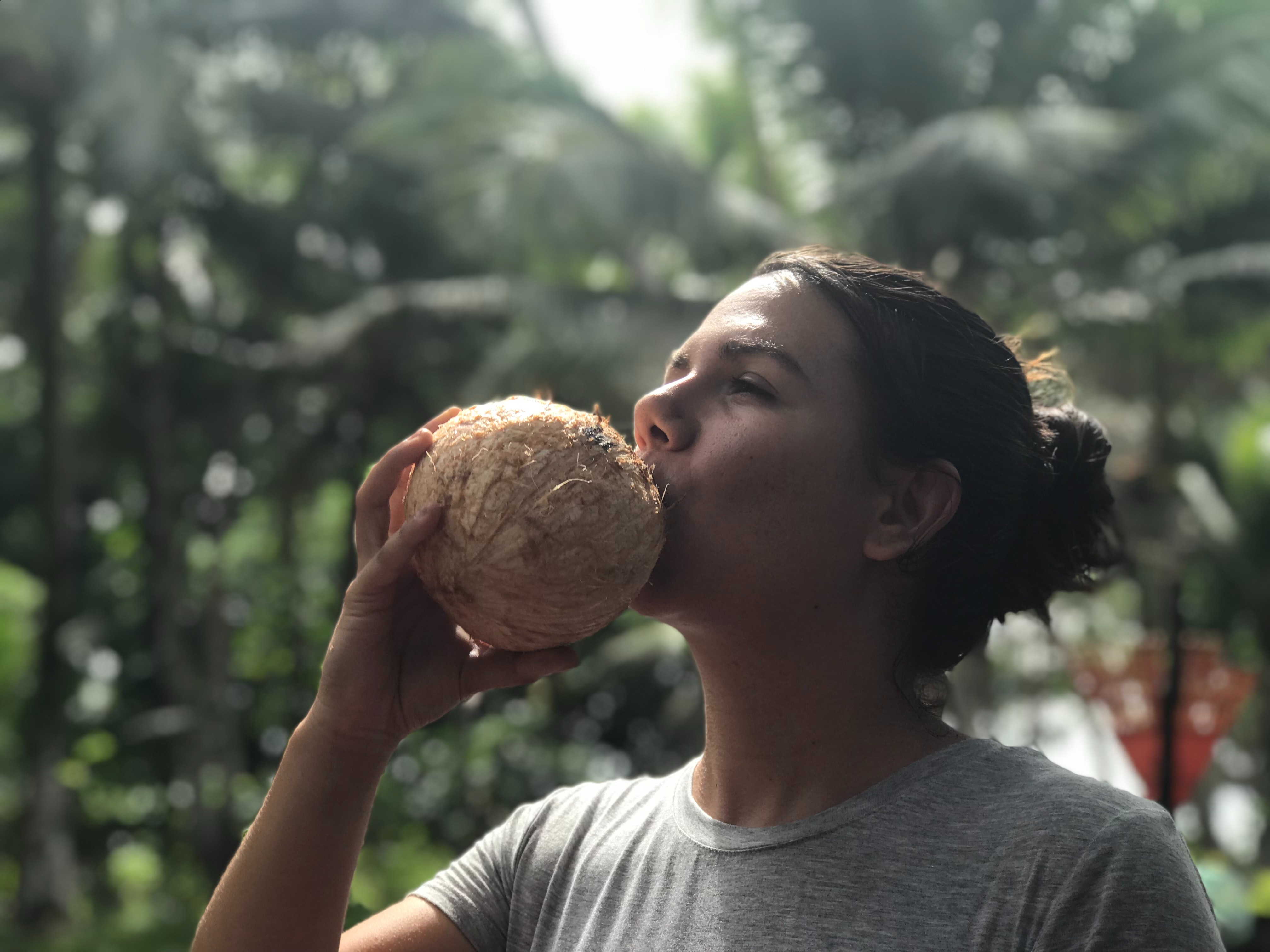Coconuts are an amazing plant – growing in warm climates all across the world to give us a great food source with lots of health benefits. From one coconut tree you can get coconut water, coconut flesh (shredded coconut), coconut milk and cream, coconut sugar and coconut oil. Each of these sources of coconut have different health giving properties.
Coconut water
Coconut water, also known as coconut juice is the fresh juice extracted from the young green coconut. Coconuts are amazing in that they make their own water source which supplies the core inside with nutrition to grow. For us humans this juice is a rich source of hydration – having a better electrolyte profile than a sports drink without all of the sugar.
Coconut water is a rich source of cytokinins, anti-aging compounds which help to prevent ageing an age related disease. Intersetingly, coconut water is nearly identical to human plasma – and has been used during war times as a transfusion to help injured soldiers.
Coconut water is great for athletes, cleansing and helping to remedy or prevent dehydration.
Coconut oil
Coconut oil is one of the most balanced oils you can eat – containing a good balance of saturated, mono and polyunsaturated fatty acids. It is high in lauric acid which is converted to monolaurin in the body. Once converted, it has been shown to have potent antiviral, antifungal and antibacterial effects, helping to ward of infections. Coconut oil is also a rich source of vitamin E, an antioxidant which helps to keep our skin soft, prevent heart disease and is anti-ageing.
Coconut oil is great if you have dry skin. You can use it both internally (eating) and topically (on your skin) to help with dryness, fungal skin rashes, inflammation and eczema.
Coconut flesh/meat
Shredded or desiccated coconut are dried forms of the white fleshy part of an aged coconut (the brown ones). Coconut flesh is a great source of fibre and contains coconut oils, thus having some of the properties outlined above. Coconut flesh is a good source of iron, zinc and trace minerals. Fresh coconut meat will be higher in nutrients, however dried coconut is still a good addition to the diet and has worthwhile health benefits. You can sprinkle it on porridge or muesli and also in savoury dishes.
Coconut milk/cream
Coconut cream is essentially concentrated coconut milk. Most often we would be using this out of a can, although it can be made fresh using the flesh of the coconut. Coconut milk is high in the same fats found in coconut oil, contains some fibre and is high in minerals such as iron, manganese and phosphorus. If using canned milk make sure that it doesn’t contain any additives like preservatives, thickening agents or fillers.
Coconut sugar
Coconut sugar is made using coconut palm nectar. It is a sweetener with a naturally low GI of 35, which is nearly half that of cane sugar (68). The low GI makes it a good alternative to sugar in baking and other recipes. Coconut sugar also contains some protein and has the minerals potassium, magnesium, phosphorus, zinc and iron. Make sure you buy the evaporated variety to gain the most benefit.



